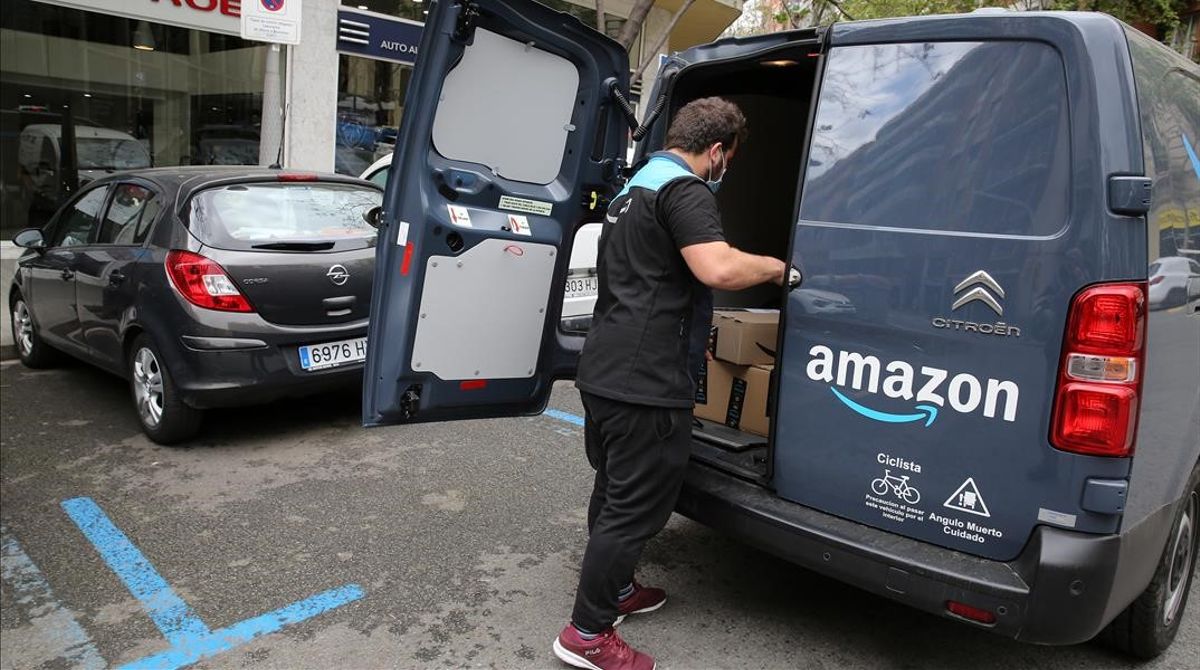The Court of Justice of the European Union last year overturned the European Commission decision that required Apple to return 13,000 million euros (plus interest) in unpaid taxes in Ireland.
This Tuesday the competition department headed by Commissioner Margrethe Vestager has once again received a new blow from the EU court of justice that further complicates its battle against the tax engineering of multinationals and tax pacts to minimize the payment of taxes.
According to the CJEU, Brussels has not sufficiently demonstrated the existence of tax advantages in favor of Amazon’s Luxembourg subsidiary and annuls the decision that forced him to return 250 million in Luxembourg.
It was in October 2017, after an investigation, when the European Commission decided that the authorities of the Grand Duchy should recover 250 million that the multinational would have stopped paying thanks to illegal tax cuts . “About three-quarters of Amazon’s profits were not taxed. In other words, Amazon paid four times less taxes than other local companies subject to the same national rules, ”Vestager denounced then.
Jeff Bezos’ multinational did not sit idly by and decided to appeal the decision before the European courts, as well as the Luxembourg Government. The General Court of the EU has agreed with them and has decided to annul that decision, considering that the Directorate-General for Competition of the European Commission “did not demonstrate sufficiently in accordance with the law that there was an undue reduction in the tax burden of a European subsidiary of the Amazon group ”.
According to the judges, the Brussels decision was based on an “erroneous analysis” and none of the findings of the Community Executive show that there were tax advantages.
Consolation with Engie
The court, on the other hand, has agreed with the Commission in its case against the French electricity company Engie. In June 2018, after another detailed investigation, Brussels demanded the return in Luxembourg of 120 million euros on account also of an advantageous tax treatment.
As Vestager denounced then, thanks to two tax agreements ( tax rulings ), two Engie subsidiaries evaded the payment of 99% of the benefits for a decade that were not paid anywhere. “The result is that you have paid an effective corporate rate of 0.3% on certain benefits,” Vestager noted.
The company, as well as the Luxembourg authorities, decided to appeal the decision, although on this occasion the court did agree with the Community Executive by verifying the existence of an advantageous tax treatment. The Government of Luxembourg has positively valued the outcome of the Amazon case while it has announced an in-depth analysis of the Engie ruling and reserves the right to appeal.
The judgments, says the Luxembourg government, “do not in any way question Luxembourg’s commitment to transparency in tax matters and the fight against tax evasion.”



 Bitcoin
Bitcoin  Ethereum
Ethereum  Tether
Tether  XRP
XRP  Solana
Solana  USDC
USDC  TRON
TRON  Cardano
Cardano  Lido Staked Ether
Lido Staked Ether  Avalanche
Avalanche  Toncoin
Toncoin